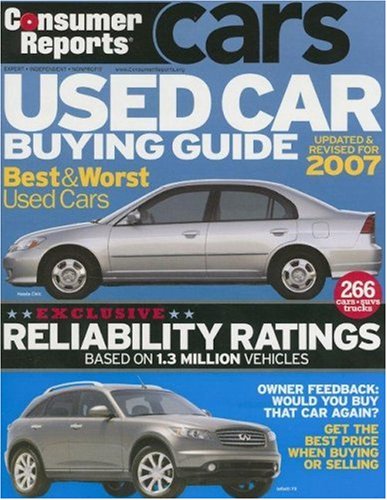CGKY News Hub
Your go-to source for the latest insights and trends.
Navigating the Car Buying Jungle
Uncover the secrets to conquering the car buying jungle! Master tips and tricks to snag the best deals and avoid costly pitfalls.
Top 5 Tips for Mastering the Car Buying Process
Buying a car can be daunting, but with a solid strategy, you can navigate the car buying process with ease. Here are the top 5 tips to help you make the best decision:
- Do Your Research: Before you step foot in a dealership, research different models, prices, and features online. Websites like Edmunds and Kelley Blue Book can provide valuable insights.
- Set a Budget: Determine how much you can afford, including insurance, maintenance, and fuel costs. Stick to this budget to avoid financial strain.
Continuing with our list of top tips for mastering the car buying process:
- Test Drive Multiple Vehicles: Always take the time to test drive several cars to get a feel for what you like. Pay attention to comfort, visibility, and handling.
- Negotiate with Confidence: Don't be afraid to negotiate the price. Do not reveal your upper limit too soon, and be prepared to walk away if necessary.
- Understand Financing Options: Explore various financing options, such as loans versus leases. Understanding the terms of your financing agreement can save you money in the long run.

The Ultimate Checklist for First-Time Car Buyers
Buying your first car can be an exhilarating yet daunting experience. To make the process smoother, it's essential to have a checklist that guides you through every step. Start by determining your budget: consider not just the purchase price but also additional expenses like insurance, maintenance, and fuel. Next, make a list of your needs and wants. What type of car fits your lifestyle? Will it be used for commuting, family trips, or weekend adventures? Once you have a clear understanding of your finances and requirements, you can begin researching different models.
After narrowing down your options, it’s time to take a closer look at individual vehicles. Schedule test drives to get a feel for each car. Keep an eye on key factors like comfort, visibility, and handling. Additionally, check the vehicle history if you're considering a used car. Don’t forget to ask sellers about warranties and return policies. Before making your purchase, compare prices and consider getting a pre-purchase inspection to avoid any hidden issues. With this ultimate checklist in hand, you’ll be well-equipped to make an informed decision and drive away with the perfect first car!
What You Need to Know Before Visiting the Dealership
Before visiting the dealership, it's essential to do your homework. Research the make and model of the vehicle you are interested in, noting the average price range and any common issues associated with it. Familiarizing yourself with various reviews and test drive experiences can significantly empower your bargaining position. Additionally, it’s wise to understand your budget, including the potential for trade-ins, financing options, and any hidden fees that may arise during the buying process.
Once you arrive at the dealership, be prepared to negotiate. The price on the sticker is often just a starting point, and you should carry with you evidence of your research to substantiate your offers. Consider making a list of your must-haves and nice-to-haves in a vehicle to ensure you stay focused. Finally, don’t feel pressured to make a decision on the spot; take your time to shop around and compare offers from different dealerships to ensure you are getting the best deal possible.